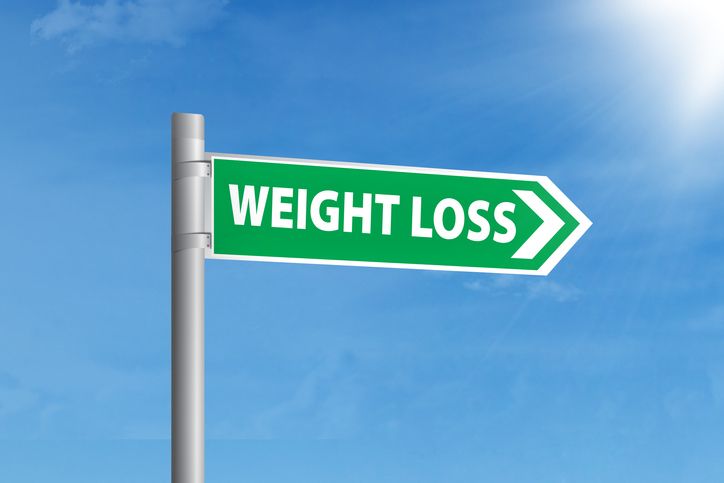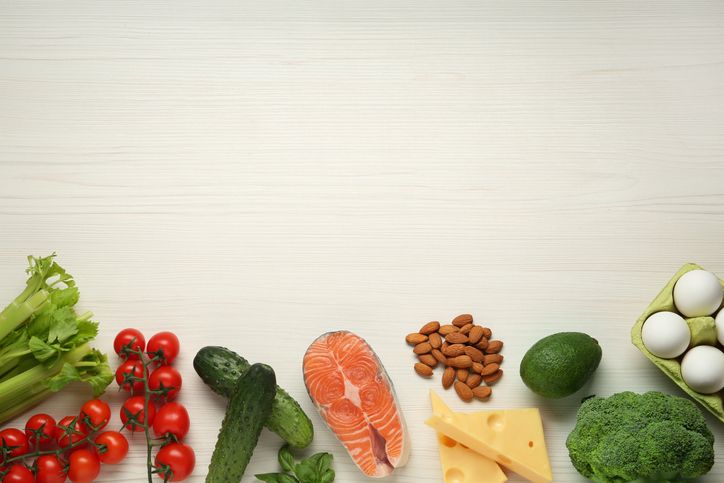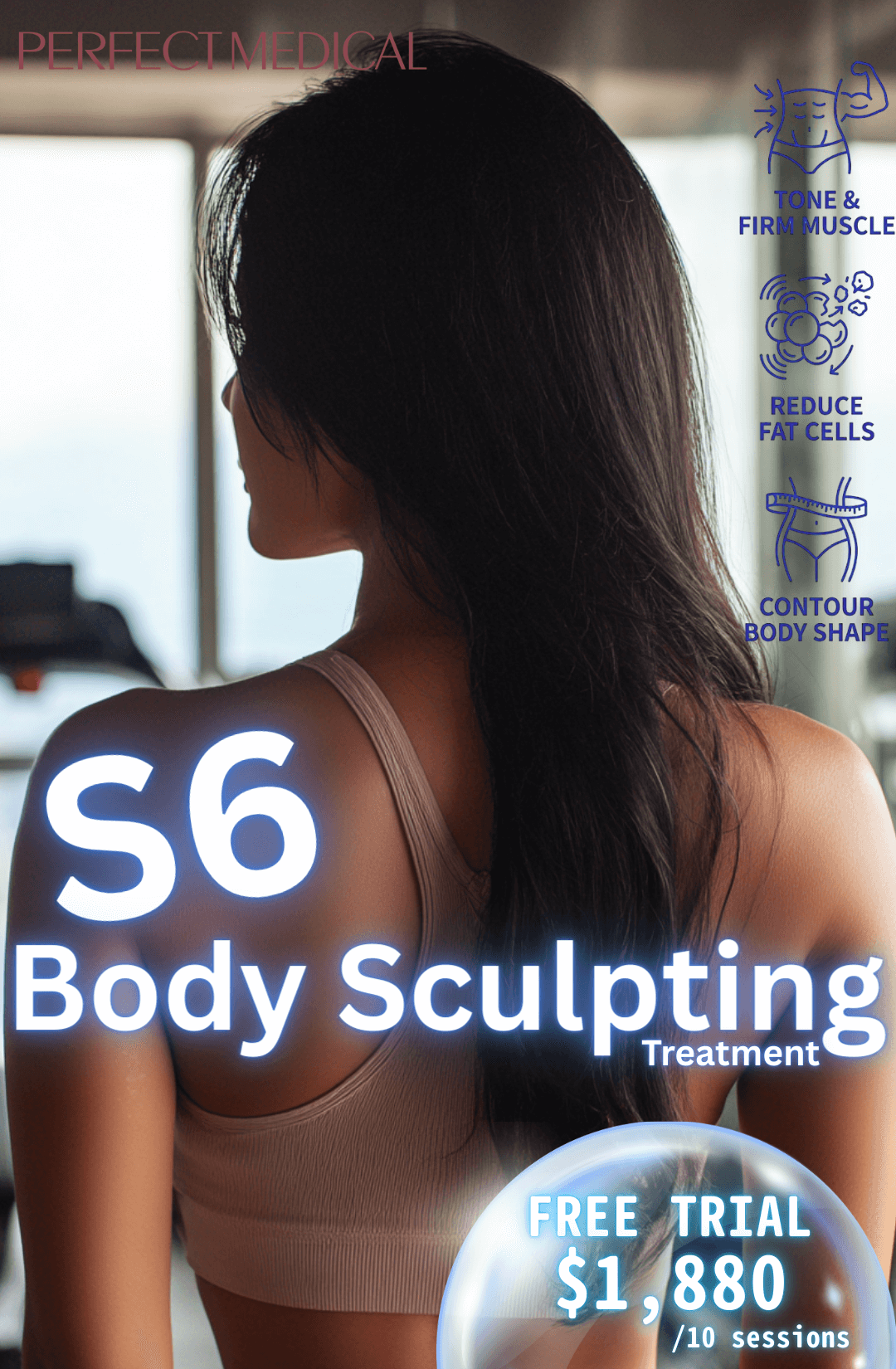
- Home
- Trend
- Weight Loss Strategies
- Acne Tips
- Hair Health Information
- Blemish Removal Tips
- Acne Scar Removal Tips
- Muscle Building Techniques
- Intimate Care Tips
- Postpartum Intimate Care
- Eye Bags Wiki
- Tips for Face Slimming
- Secret of Permanent Hair Removal
- Breast Enlargement Tips
- Cure to Snoring
- Marionette Lines
- Skin-Tightening Secrets

免費體驗
S6 Body Sculpting Treatment
1 Minute Self-Registration
Date should not be before minimal date
Losing weight isn't just about looking better; it's primarily about improving your health and overall well-being. The journey to weight loss is a personal one, and it can be a life-changing experience if approached correctly. In this comprehensive guide, we will explore various aspects of weight loss, from setting realistic goals to maintaining your desired body weight. This article will provide a deep dive into the process of losing weight, offering practical tips and insights to help you achieve your weight loss goals and, more importantly, maintain a healthy body weight.
1
The Importance of Setting Realistic Goals

Your journey to weight loss begins with setting achievable and realistic goals. When it comes to weight loss, a gradual and steady reduction is the key to success. Aim for a loss of 1-2 pounds per week. This rate is considered healthy and sustainable, as it allows your body to adjust without extreme changes that may be difficult to maintain.
Setting realistic goals means understanding that weight loss isn't just about numbers on a scale. It's about feeling better, improving your health, and gaining confidence. Before you embark on your weight loss journey, consider your current health status, body type, and lifestyle. Consult with a healthcare professional if necessary to set realistic, personalised goals that consider your unique circumstances.

2
Tip 1: Make Sure You Know the Risk of Obesity if You Don't Lose Weight

If individuals who are obese do not take steps to address their weight, there can be several health-related consequences and complications, including:
1. Increased Risk of Chronic Health Conditions: Obesity is associated with a higher risk of developing various chronic health conditions, including: - Type 2 Diabetes: Obesity is a significant risk factor for type 2 diabetes. It can lead to insulin resistance and impaired glucose regulation. - Cardiovascular Disease: Obesity is linked to heart disease, including hypertension, atherosclerosis, and an increased risk of heart attacks and strokes. - Hypertension (High Blood Pressure): Excess body weight can lead to high blood pressure, which is a major risk factor for heart disease and stroke. - Dyslipidemia: Obesity can result in abnormal lipid profiles, characterized by elevated levels of LDL cholesterol and triglycerides, and reduced levels of HDL cholesterol. - Respiratory Problems: Obesity can lead to breathing difficulties, sleep apnea, and an increased risk of respiratory disorders. - Joint Issues: The excess weight places added stress on the joints, increasing the risk of conditions like osteoarthritis and joint pain.
2. Increased Cancer Risk: Obesity is associated with a higher risk of certain cancers, including breast, colorectal, endometrial, and kidney cancer. 3. Psychosocial Effects: Obesity can lead to negative psychosocial effects, such as low self-esteem, depression, and body image issues. It may also result in social stigma and discrimination. 4. Reduced Mobility: Obesity can limit physical mobility, making it difficult to engage in regular activities, exercise, and daily tasks. 5. Decreased Quality of Life: The physical and emotional challenges associated with obesity can reduce an individual's overall quality of life. 6. Shortened Life Expectancy: Obesity is associated with a decreased life expectancy due to its link with life-threatening health conditions. 7. Economic Burden: Managing the health complications of obesity can lead to increased healthcare costs and economic burden for both individuals and society as a whole.
It's important to note that addressing obesity is not solely about achieving a specific appearance or body size but primarily about improving health and well-being. If you or someone you know is struggling with obesity, seeking professional guidance from healthcare providers, registered dietitians, and mental health professionals can provide the necessary support and resources to address this condition effectively and holistically. Weight management plans should be individualised and focus on overall health and well-being.
- Lazy Girl’s Guide To Slim Calves: RedNote-Approved Techniques!
- Keep Fit Guide: 6 Best Weight Loss Exercise Choices + 7 Key Dietary Principles
- 5 Steps for Muscle Gain from Zero — With Sample Meal Plan & Common Gym Myths Debunked
- Postpartum Diastasis Recti: Still Look Pregnant After Giving Birth? 3 Exercises + 1 Treatment To Help You Regain Your Core
3
Tip 2: Meddle Your Relationship with Food to Help with Weight Loss

A balanced diet is at the core of any successful weight loss plan. It's not about deprivation; it's about making healthier food choices and eat less. Here are some key principles to guide you:
Embrace fruits and vegetables
Fruits and vegetables should be the foundation of your diet. They are rich in vitamins, minerals, fibre, and antioxidants. They provide essential nutrients while keeping you full with fewer calories. Aim to fill half your plate with fruits and vegetables at every meal.
Choose lean proteins
Proteins are essential for muscle maintenance and overall health. Opt for lean sources like poultry, fish, lean beef, and plant-based options like beans and tofu. Protein can help control hunger and maintain muscle mass during weight loss.
Whole grains for sustained energy
Whole grains like brown rice, whole wheat bread, and quinoa provide sustained energy and are more filling than refined grains. They also offer essential nutrients and fibre.
Healthy fats
Don't shy away from fats entirely; your body needs them. Choose healthy fats from sources like avocados, nuts, seeds, and olive oil. These fats are heart-healthy and can help you feel satisfied.
Limit processed foods and sugary beverages
Processed foods are often high in unhealthy fats, sugars, and sodium. Minimise your consumption of these foods. Sugary beverages like soda and fruit juices are loaded with empty calories; choose water or herbal tea instead.

4
Tip 3: Smart Snacking Choices to Help Maintaining Weight Loss

1. Nuts
Nuts are an excellent choice for a smart snack. Almonds and walnuts, for instance, are not only delicious but also packed with healthy fats, protein, and fibre. These nutrients can help you stay full and satisfied between meals. However, it's essential to be cautious with portion sizes because nuts are calorie-dense. A small handful, about one ounce, is usually a suitable portion. - Cashews - Pecans - Pistachios
2. Fruits
Fruits are a natural and nutritious option for satisfying your sweet cravings while providing essential vitamins and fibre. They are low in calories and high in antioxidants. Keeping a variety of fruits readily available makes it easy to choose them as a snack. You can enjoy fruits like apples, oranges, and berries to curb your hunger between meals. - Bananas - Grapes - Pineapple
3. Yogurt
Greek yoghourt is an excellent choice for a smart snack due to its high protein content. Protein helps you feel full and satisfied for longer periods. Opt for plain Greek yoghourt, which is lower in added sugars, and add your favourite fruits or a drizzle of honey for sweetness and flavour. This way, you can enjoy a creamy and delicious snack without unnecessary sugar. - Regular yoghourt with live cultures - Low fat yoghourt - Dairy-free yoghourt alternatives like almond or coconut yoghourt
4. Avoid sugary or processed snacks so you'll not gain weight
It's crucial to avoid sugary or processed snacks like cookies, chips, and candy. These items are typically high in empty calories, added sugars, unhealthy fats, and lack essential nutrients. Consuming such snacks can lead to weight gain and have a negative impact on your overall health. Instead, opt for the healthier options mentioned above to support your weight loss goals. More examples of what to avoid: - Soda and sugary drinks - Highly processed packaged snacks - Deep-fried foods
Choosing smart snacks like nuts, fruits, and yoghourt can help you maintain your energy levels and keep your hunger in check, all while contributing to your weight loss efforts. These snacks are not only tasty but also beneficial for your health.
免費體驗
S6 Body Sculpting Treatment
1 Minute Self-Registration
Date should not be before minimal date
5
Tip 4 - The Importance of Regular Exercise

Incorporating regular exercise into your routine is a crucial part of any weight loss plan. It not only helps burn calories but also improves overall health. Aim for at least 150 minutes of moderate-intensity aerobic activity per week. Here's how to get started:
Cardiovascular exercises
Cardiovascular exercises, often referred to as "cardio," are activities that increase your heart rate and breathing. They are excellent for burning calories and improving cardiovascular health, which is essential for weight loss. Starting slowly and progressively intensifying your workouts is crucial to avoid overexertion and injuries.
At-Home Example: A simple at-home exercise that can provide cardiovascular benefits is jumping jacks. Start with a few minutes of jumping jacks each day and gradually increase the duration. It's an effective way to elevate your heart rate and burn calories in the comfort of your home.
Strength training
Strength training exercises involve resistance, which helps build muscle. More muscle mass can boost your metabolism and support long-term weight management by increasing your body's calorie-burning capacity. You can use your body weight for resistance exercises or incorporate weights or household items as makeshift weights.
At-Home Example: A classic bodyweight strength exercise you can do at home is a push-up. It targets your chest, shoulders, and triceps. To start, perform push-ups from your knees if needed, and gradually work your way up to traditional push-ups as your strength improves.
Variety may help you to lose weight faster
To keep exercise engaging and sustainable, it's important to introduce variety into your routine. Trying different activities and finding what you enjoy the most can help you stay motivated. This variety prevents boredom and challenges your body in different ways.
At-Home Example: You can incorporate variety by alternating between different home workouts. For instance, one day you can focus on bodyweight exercises like squats and lunges, and the next day, you can try a yoga or dance workout video to keep things interesting.
Incorporating a mix of cardiovascular exercises, strength training, variety, and, if needed, professional guidance can help you create an effective and enjoyable workout routine at home. These approaches can contribute to calorie burning, improved fitness, and successful weight management in the long run.

6
Tip 5 - Stress Management for Weight Loss Success

Several studies have explored the relationship between emotional stability or emotional well-being and its impact on weight management and weight loss. While the exact mechanisms can be complex and multifaceted, research has indicated that emotional stability and better emotional well-being can indeed have a positive influence on weight loss as excessive stress can lead to emotional eating, which can sabotage your weight loss efforts. Finding healthy ways to manage stress in Singapore is crucial:
1. Mindfulness meditation
Mindfulness meditation is a practice that encourages you to be fully present in the moment, without judgment or distraction. By focusing on your breath, sensations, and thoughts, it can help you become more aware of your emotional and physical state. This heightened awareness allows you to recognize and manage stress more effectively.
Benefits: Engaging in mindfulness meditation can be a powerful tool for weight loss because it helps you become attuned to your body's hunger and fullness cues. This increased awareness can prevent impulsive emotional eating, enabling you to make healthier food choices.
2. Yoga
Yoga is a holistic practice that combines physical postures (asanas), controlled breathing exercises (pranayama), and meditation. It promotes physical and mental well-being by enhancing flexibility, reducing muscle tension, and fostering a sense of relaxation and mindfulness.
Benefits: Yoga not only helps reduce stress but also encourages self-acceptance and a positive body image. It can be particularly beneficial for those seeking weight loss by promoting a healthy relationship with their bodies and fostering a calm mindset that supports mindful eating.
3. Deep breathing exercises
Deep breathing exercises involve taking slow, deliberate breaths to activate your body's relaxation response. This practice can lower cortisol levels (the stress hormone) and reduce the body's fight-or-flight response, helping you feel calmer and less stressed.
Benefits: Lowering stress levels through deep breathing can have a direct impact on weight loss. High stress can lead to overeating and cravings for unhealthy foods. By managing stress with deep breathing, you can reduce the likelihood of turning to food for emotional comfort.
4. Identify stressors
Identifying stressors involves recognizing the specific factors or situations that trigger your stress. It can be related to work, relationships, financial concerns, or personal life issues.
Benefits: Understanding and addressing the root causes of your stress is essential for long-term weight management. By identifying stressors, you can develop strategies to cope with or mitigate these sources of stress, reducing the need for emotional eating and supporting your weight loss goals.
Incorporating these stress management techniques into your daily routine can have a positive impact on both your mental well-being and your weight loss efforts. By effectively managing stress, you can reduce emotional eating, make healthier food choices, and create a supportive environment for achieving and maintaining your desired weight.
7
Tip 6 - Lose Weight Fast with a Little Help

Over time, our sedentary lifestyles or office jobs can lead to the accumulation of stubborn fat layers, making it challenging to maintain a healthy weight. However, a solution is at hand for those who wish to shed excess fat but can't bring ourselves to adhere these rules and habits. The S6 Body Sculpting Treatment, offered by Perfect Medical, is an innovative non-invasive, and non-surgical approach to body contouring. This treatment employs a low-energy bio-laser technology to target and break down these unwanted fat layers, promoting your journey towards achieving your ideal weight.
One of the remarkable advantages of this treatment is its non-invasiveness, meaning there are no surgical procedures involved. This implies that you can achieve your desired body shape without the need for incisions or invasive techniques, reducing the risks and downtime typically associated with traditional surgical interventions. Additionally, there's no downtime, allowing you to continue your daily routine without interruption.
The treatment utilises a patented low-energy bio-laser, which penetrates deep into the subcutaneous fat layers of specific body areas. By directing fatty acids into the capillary system, the laser energy heats and eliminates fat cells. Simultaneously, a gentle suction technique massages the treated area, enhancing the metabolism of these fat cells. Notably, this bio-laser technology not only aids in fat reduction but also stimulates collagen production, resulting in improved skin elasticity and firmness.
Furthermore, the treatment focuses on targeting seven key problem areas where fat is often stubborn and difficult to eliminate, including the abdomen, waist, biceps, buttocks, thighs, and legs. This comprehensive approach ensures that you can achieve a more sculpted and toned appearance quickly and effectively.
By combining the benefits of protein bars with the S6 Body Sculpting Treatment, you can embark on a journey to healthy and sustainable weight loss. This non-invasive and downtime-free treatment offers a convenient and efficient way to enhance your body shape and support your weight loss goals, making it an attractive option for those seeking a more appealing physique.

8
The Final Word

The journey to achieving and maintaining a healthy body weight is a transformative and empowering experience. It's about embracing a lifestyle that prioritises health, well-being, and self-care. While weight loss is a significant part of this journey, it's essential to remember that it's just one piece of the puzzle. The real goal is to live a fulfilling life with vitality, energy, and happiness.
Weight loss isn't just about the physical changes; it's also about feeling better and healthier. Maintain a positive mindset throughout your journey, and always focus on the bigger picture. A healthier and happier you is within reach, and this guide will be your constant source of support and guidance. Good luck on your journey towards a healthier, more vibrant you.

免費體驗
S6 Body Sculpting Treatment
1 Minute Self-Registration
Date should not be before minimal date
FAQ

1. What are the key principles of a healthy diet?
A healthy diet typically includes a variety of fruits, vegetables, lean proteins, whole grains, and healthy fats. It's important to balance your calorie intake with physical activity and reduce the consumption of processed and sugary foods.
2. How can I improve my time management skills?
Effective time management involves setting priorities, creating schedules, and using tools like to-do lists and calendars. It's also essential to learn to say no when necessary to avoid overcommitting.
3. What is climate change, and how does it affect the planet?
Climate change refers to long-term alterations in global temperatures and weather patterns. It can lead to rising sea levels, extreme weather events, loss of biodiversity, and impacts on agriculture, posing significant environmental and social challenges.
4. What are the benefits of regular exercise for overall health?
Regular exercise offers numerous health benefits, including improved cardiovascular health, weight management, reduced risk of chronic diseases, enhanced mental well-being, and increased physical fitness.
5. How do I maintain a work-life balance?
Achieving work-life balance involves setting boundaries, prioritising self-care, and managing time effectively. It's crucial to separate work and personal life, delegate tasks when possible, and make time for relaxation and hobbies.








